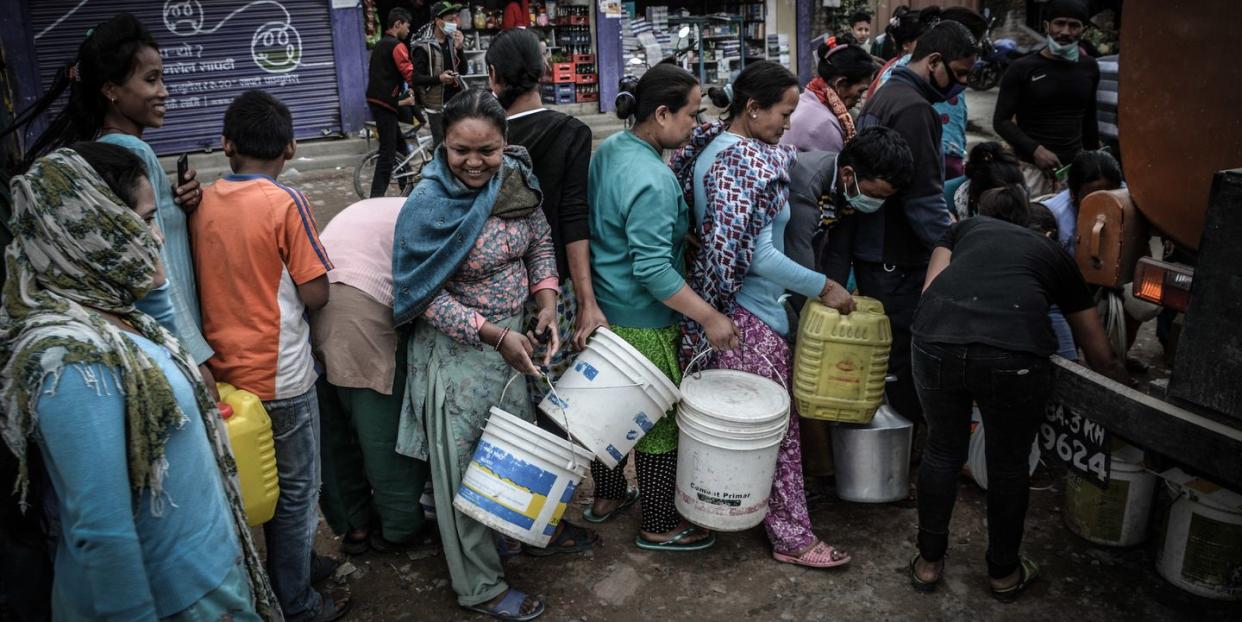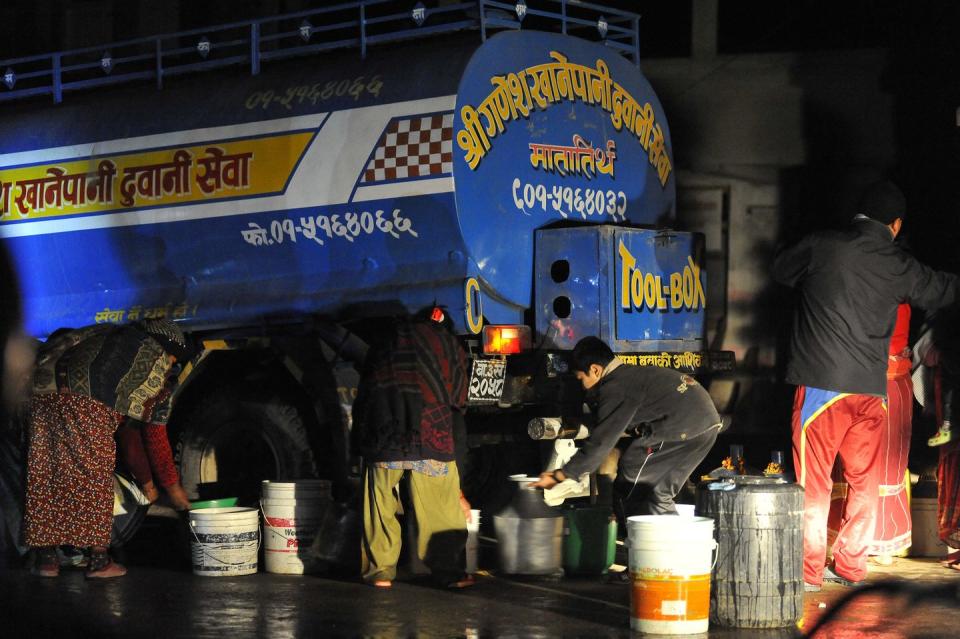There Will Be Wars Over Water, and Not Just in the Desert

Coming soon to a southwestern United States suburb near you: the water trucks. From The New York Times:
A Malaysian embassy residence had run perilously low on water, and the diplomats wanted to shower. They’d pay extra for a swift delivery. A coffee processing plant was on the verge of shutting down production after emptying its storage tank. It, too, would shell out whatever amount of money it would take. Across the neighborhood and other parts of the city, the calls were coming in so feverishly that Sanjay, a tanker driver, jokily wondered if he might get carjacked. “This is like liquid gold,” he said, jabbing at his precious cargo, large amounts of which seeped from every hatch. “Maybe more than gold.”
Wonderful.
Dashing from filling stations to houses and factories and back, Mr. Tamanz tried to meet demand. His three tanker crews slept in one or two-hour spurts, often in the cramped, refrigerator-sized truck cabins, and kept the tankers on the road for up to 19 hours a day. He fobbed off business to competitors, an unusual practice in the cutthroat world of Kathmandu tanker men, and even sounded out a mechanic about converting a flatbed truck into a new tanker. With fat profits pouring in, the young businessman figured it might soon repay its cost...
“You know it’s not even peak season, but this is what happens here,” Mr. Tamanz said. “Just imagine what things would be like if we didn’t exist?” He trailed off as his phone rang once more.
Sometime in the not-so-distant future, there will be wars over water. Water will fuel internal social and political disruptions within nations. These phenomena will not be isolated to desert countries, either. (The Times story begins in Malaysia, which is not exactly Chad.) And along with civil and political unrest will come flocking the profiteers, which will guarantee more of both.
In Kathmandu, as in much of South Asia and parts of the Middle East, South America and sub-Saharan Africa, these men and their tanker trucks sometimes prevent entire cities from running dry. Without them, millions of households wouldn’t have sufficient water to cook, clean or wash. Or perhaps any at all. And without them, an already deteriorating infrastructure might break down completely, as the tanker men know well. “The city depends on us,” said Maheswar Dahal, a businessman who owns six trucks in Kathmandu’s Jorpati district. “There would be disaster if we didn’t do our work.”

Yet there’s another side to them, too, one that is less pleasant and sometimes outright nasty. Tankers frequently deliver poor quality water, which can sicken. They usually charge much more than the state, devastating to the poor. Tanker water costs on average 10 times more than government-supplied pipeline water, according to a World Resources Institute study of water access in 15 cities across the developing world, a figure that rises to 52 times more in Mumbai. Greedy, uncompromising and fearful of being knocked from their perch, some tanker operators even conspire among themselves to fortify the conditions that contributed to their emergence in the first place.
But central to the problem is the climate crisis, which has brought serious drought to places like Cape Town in South Africa and Chennai in India, and there will be more places like that. And tell me this doesn’t sound so very America, 2020.
Tanker men field so many demands for bribes that they sometimes keep wads of cash on hand for that purpose. If they don’t pay sums that vary from 5,000 ($43) to 100,000 ($866) rupees, they can get shut down, a dozen businessmen said. These costs, too, must be passed on to the consumer. Officials are noticeably tentative in their denials. “These claims are not related to our organization, but perhaps the traffic police or someone else,” said Mr. Rana of the water management board, citing what’s widely seen as the greediest branch of Nepali officialdom.
Surely our experience with, say, the pharmaceutical companies can make us confident that It Can’t Happen Here.
Respond to this post on the Esquire Politics Facebook page here.
You Might Also Like


